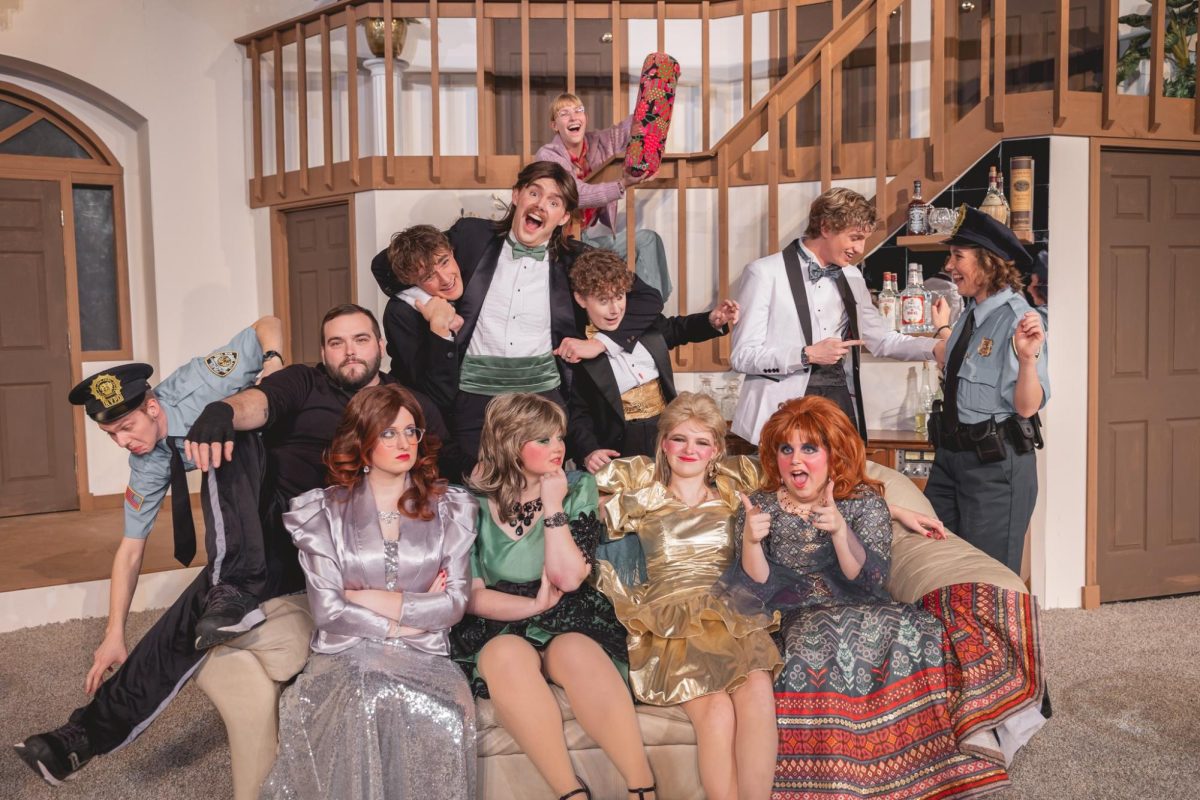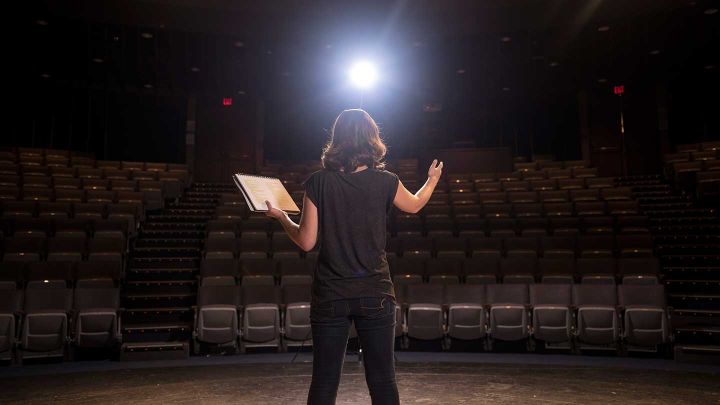“Bioshock Infinite” is fantastic. Now that I have that out of the way, I think I can actually move on to the meat of the matter and talk about what it did right and what it did wrong (yes, I think it did some things wrong). But let’s start with the stuff the game does right, shall we? To begin, no one I have talked with has been able to stop geeking out about this game. It masters so many things and if this really is developer Ken Levine’s magnum opus, it’s a great one.
You are Booker Dewitt, a former Pinkerton (strike-breaker), drunkard and gambler haunted by a dark past. After a brief trip, you find yourself in Colombia, a city in the clouds (no joke, quantum physics and all that — please insert “Bioshock’s” pompous hand-wave here). Having amassed a large gambling debt with no way to pay it off, you are tasked by mysterious benefactors to find a girl in Colombia and bring her back to New York City. If you do so, you can walk away debt free. One kidnapping (or rescue, if lying to yourself suits your fancy) and you will get a clean slate. Colombia is a fantastic, whimsical cloud city looking just like main street America circa 1900. It’s all small shops, people enjoying lunch on the lawn, upstanding citizens without a care in the world discussing what they will do that day — at least, that’s what it looks like. This job should be a walk in the park.
But things are hardly so simple for you, and the rescue does not go as planned. And here is where the back of the box, and I, stop. Because frankly this is a good 12+ hour game, and even though I have only talked about events in the first two or three, to go any farther would give major spoilers. So let me be ambiguous about the middle and say it is great. And please allow me to be hyperbolic about the end and say that it is mind-blowing. It’s hard to describe in any detail without spoilers, but the game’s ending makes you rethink every action you have taken in the entire game: the nature of right and wrong, baptism and even the idea of redemption. And right there “Bioshock Infinite” earns my gold star — a game that makes you think is a wonderful thing. When you have to question what you believe and walk away wondering what’s what, then the narrative has done its job well. This game masters the art of creating a story that you are involved in. By the end, you begin to care about the characters and thus are invested in the heart-wrenching ending. All right, the ending is also a tad confusing and might take two or three times before you make sense of it all, but it is worth it.
The other thing that the game masters is atmosphere. Just like how Ken Levine created a chilling, even haunting atmosphere for the decrepit city of Rapture in the first “Bioshock,” “Infinite’s” surroundings will make you feel whatever emotion the developers want you to. At times the pristine, picturesque, turn-of-the-century Americana feel comes through, but in others the game takes on a dark and foreboding tone. “Infinite” doesn’t just create these atmospheres through the music, but through the dialogue and scenery as well, crafting a game that pulls you into the experience.
But no game is perfect. Unfortunately some things from the first “Bioshock” game (set in Rapture) have made their way into “Infinite” (set in Colombia, a very different city), and don’t fit very well. The most obvious of these things are the “vigors.” These are power-ups, drinkable potions that give you the ability to start someone on fire or shoot lightning from your fingertips with just the wave of a hand. In the first game they were called “plasmids” and, because everyone was overusing them and became too powerful, Rapture was destroyed. Its citizens literally tore the city to pieces. In Colombia, only a few people use them, you only meet one every once in awhile, despite vigors being so cheap that you are given your first vigor for free. They fit with the story of Rapture and how power comes with responsibility, but in Colombia they don’t make sense. Few people use them and it feels like the developers threw them in just because the title of the game said “Bioshock.” While they don’t break the combat and actually make it more interesting at times, there is always a nagging feeling as though they don’t fit, even if you’ve never played the first “Bioshock.”
Another carryover is the looting mechanic. There are a lot of objects on the ground, on store shelves and on dead bodies that you can pick up, or loot. In Rapture, a city in ruins, this made sense: looting was the only way to get supplies. But in Colombia, looting anything more than dead bodies just feels weird. As you walk down your first street in Colombia you meet a gentleman selling hot dogs, and the game lets you walk right up and eat all of the hot dogs set out to be purchased without the man doing anything. He doesn’t move, ask for money, call the cops, nothing — he just keeps looking at you in a deadpan smile. When things like this happen as you walk through Colombia, something about it just feels wrong. The looting mechanic feels out of place in small town America. Add to this disconcerting feeling that at three very specific points in the game, you are not allowed to steal. Why not? There has never been a punishment before when you looted that cash register in front of the smiling tailor. Why now? Why will they shoot at me now if I rob the cash register but not at the last 10 shops? Any game developer will tell you that when you make a game mechanic the worst thing that you can do is change the rules on the player, but that is exactly what happens and for no apparent reason.
Lastly there is the level of violence. Booker is a man with no qualms about violence. If any town in America, even in 1912, had a killer walking through the streets shooting every cop he saw, they wouldn’t let him get away with it. They would send in everything that they had. Instead the Colombian police and government send a squad at a time. By the end Booker has killed hundreds of police officers and soldiers. How did he manage to walk through the city with constant but not heavy opposition?
The over-the-top violence did add one thing to the game. If an enemy’s health is low enough, you can melee for an execution, a scripted animation that will kill your enemy in a very violent manner, usually akin to hacking their face with an axe. But at these moments, which are not very different from the industry standard, Elizabeth will usually say something, sometimes as innocuous as an “ugh,” but other times she gasps or even says, “oh my god!” This makes for some cognitive dissonance for the player: on the one hand you can see the violence before as OK, you have to fight in order to survive, but turn around and you will see Elizabeth, the pure and innocent Belle-look-alike (from “Beauty and the Beast”), horrified at what you have just done. And in that moment you know that something must be wrong when that level of brutality has become you. The purity of Elizabeth shouldn’t — can’t — mix with the terrible thing that you have done. It was one of these moments that caused me to mentally step back, pause the game and actually stop playing for a few minutes to consider what had I done. Was this level of violent behavior all right? Had I just killed a computer program, or had I killed a part of myself by willingly committing such an act? After all, I had pressed the button knowing full well what would happen when I did. Maybe I am dramatizing here a little, but it’s to get a point across. This game made me rethink what I had done, what I was going to do and what was OK. This game made me think and that is why it is so fantastic. I highly suggest it to anyone who is looking for a great game. And for those of you who are wondering, no, I could never bring myself to perform another execution.
Also, if you would like to view a shortened playthrough of the game, the Calvin Student Activities Office will be showing one later this semester.






